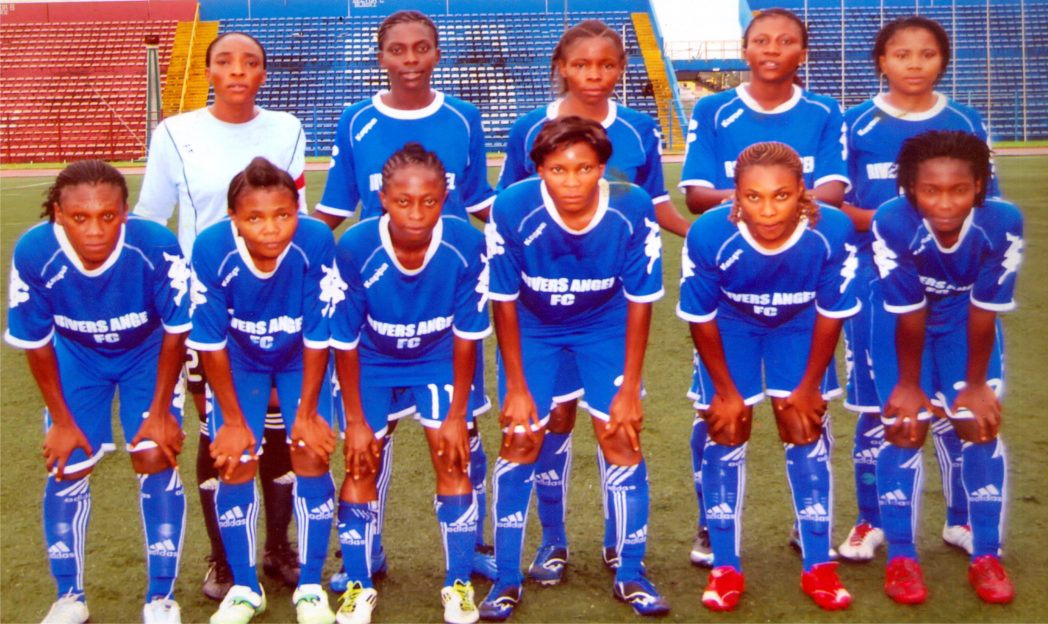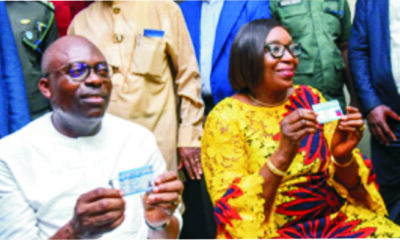Sports
CAF Rules Out AFCON Postponement
The Africa Cup of Nations, due to be held from January 17 to February 8, would not be postponed because of the Ebola epidemic, an African football official said last Monday.
Hosts Morocco have called for the tournament to be pushed back because of fears that an influx of several hundred thousand supporters could spread the virus which has killed more than 4,950 people in West Africa.
But Confederation of African Football (CAF) media director Junior Binyam said there would be no postponement after meeting with Moroccan officials.
“CAF confirms the dates of the tournament,” Binyam said, adding that a second meeting was slated for November 11 at the confederation’s Cairo headquarters to “take the necessary decisions”.
Morocco now have until November 8 to officially respond to CAF, Moroccan football federation spokesman Mohamed Makrouf said.
The options are either Morocco hosting the tournament as planned, holding the tournament in another country, or cancelling it, he said.
“Any change of dates would be to the detriment of the CAF calendar, which must follow FIFA’s international calendar,” Binyam insisted.
The Ebola epidemic first impacted the Cup of Nations last August when Seychelles forfeited a qualifying tie rather than host a return match against Sierra Leone.
As the death toll mounted dramatically in Sierra Leone and Guinea, CAF barred both countries from hosting group games.
Morocco agreed to accommodate Guinea, but Sierra Leone could not secure a neutral venue and have had to play home fixtures away at opponents Democratic Republic of Congo and Cameroon.
Not being able to perform before their supporters had an inevitable negative effect on results and Guinea and Sierra Leone are bottom of their four-team groups with two rounds left.
Should Sierra Leone lose in Ivory Coast on November 14 and Guinea in Togo a day later, both will be eliminated from the qualifying race.
The first Cup of Nations took place 57 years ago in Sudan and only featured the hosts, Ethiopia and winners Egypt, but its popularity grew rapidly with qualifying introduced ahead of the 1968 tournament.
When Cameroon 800-metre athlete Issa Hayatou was elected CAF president in 1988, he inherited an eight-team tournament, but he set about expanding it.
There were 12 teams by 1992 and the number was supposed to rise to 16 in South Africa four years later.
But strained political relations between the host nation and Nigeria over the execution of activist Ken Saro-Wiwa meant the defending champions did not compete.
The other Cup of Nations that went ahead one team short was that hosted by Angola in 2010 with Togo withdrawing after an official and a footballer were gunned down by separatists in an ambush in Angola’s Cabinda province.
Togo were crossing the border into northern Angola by road after training in Congo Brazzaville when tragedy struck, creating the darkest day in Cup of Nations history.
As the African football showcase expanded into a tournament attracting a global TV audience, so did its appeal to marketing companies.
A $5.5 million (4.4 million euros) TV and marketing rights deal per tournament before 2010 more than doubled to the current $11.7 million (9.4 million euros) price tag.
Sports
Barcelona Open: Nadal’s Comeback Ended By World No 11
Rafael Nadal’s injury comeback was ended by Alex de Minaur as the 12-time champion waved goodbye to the Barcelona Open for possibly the final time. Nadal, 37, returned to court on Tuesday after a three-month absence, making light work of 21-year-old Italian Flavio Cobolli in a straight-set win.
A day later, Nadal lost 7-5 6-1 to world number 11 De Minaur in round two.
Nadal, a 22-time major winner, has indicated he plans to retire in 2024 if he is unable to compete regularly.
The former world number one, now ranked 644th, has only played five matches since January 2023 because of hip and abdominal injuries.
Nadal is hoping to be fit enough to make a return to the French Open, where he won a record 14 men’s singles titles, next month.
Facing a player of De Minaur’s pedigree was always likely to be a considerable step up, and a truer test of his level than his comeback outing against 62nd-ranked Cobolli.
The 25-year-old Australian tried to test Nadal’s movement by using drop shots early in the match, an effective tactic which helped him move 2-0 in front and tee up another break point for 3-0.
But Nadal survived to hold and improved his level, producing a number of explosive cross-court backhand winners as he fought back to lead 4-3.
Another backhand winner, this time down the line, even drew a clap of the strings from De Minaur and teed up another break point for Nadal.
Taking the chance would have left Nadal serving for the set, but De Minaur recovered and won 19 of the next 24 points to win an opener lasting more than an hour.
After so long out, and with playing on consecutive days, Nadal’s endurance was always going to be tested, particularly against an opponent known for his athleticism.
De Minaur played smartly in a one-sided second set and broke Nadal’s serve three times, silencing the Barcelona crowd in the process, to secure an impressive victory.
Nadal left the court bearing his name – for what could be the final time – to a standing ovation and rapturous send-off.
Meanwhile, British men’s number two Jack Draper reached his 10th ATP Tour quarter-finals at the BMW Open in Munich.
Draper, 22, fought back after a rain delay to earn a 4-6 6-1 6-1 win over
German world number 179 Rudolf Molleker at the clay-court event.
Sports
Leverkusen Chief Backs Alonso To Join Madrid
Bayer Leverkusen chief executive Fernando Carro has claimed that Xabi Alonso will coach Real Madrid, while also lending fresh hope to Liverpool.
Alonso’s remarkable success at Leverkusen, who clinched their first-ever Bundesliga crown at the weekend, has positioned him as one of the most sought-after managers in Europe, with Liverpool and Bayern Munich previously leading the chase. Despite the interest, the 42-year-old Spaniard has affirmed his commitment to remain at the helm of the Bundesliga outfit for at least one more season.
However, Leverkusen’s leadership acknowledges the challenge of retaining Alonso over the long term, given his burgeoning reputation and the inevitable interest from top clubs across Europe. Among the potential destinations for Alonso, Real Madrid stands out prominently as Carro expressed his belief that Alonso could eventually return to the Spanish capital, where he enjoyed a distinguished playing career.
Speaking to Tidesports source, Carro also suggested Liverpool still have a chance of striking a deal for Alonso one day, as he stated: “I have no doubt that Xabi Alonso will coach Real Madrid at some point. What I am not clear about is when, but that he will end up at Real Madrid I have no doubt, as it is also possible that he trains Liverpool or Bayern.
There are a lot of clubs interested, that’s how it is, which doesn’t mean that in the future he can’t coach some of the clubs mentioned, especially his former teams as a player. But he feels comfortable here, otherwise he wouldn’t continue. We will maintain our ambition to play in the Champions League next year.”
Despite Real Madrid’s current managerial stability under Carlo Ancelotti, whose contract is due to run until 2026, reports suggest that the club’s hierarchy views Alonso as the ideal candidate to succeed Ancelotti when his tenure concludes. The backing of Real Madrid’s board, including club president Florentino Perez, further solidifies Alonso’s prospects of potentially assuming the managerial reins at the Santiago Bernabeu in 2026. Allegedly aware of the esteem in which the club’s leadership holds him, Alonso has opted to remain at Leverkusen, biding his time for a potential return to Real Madrid.
Alonso is focused on preparing Leverkusen for the second leg of their UEFA Europa League quarter-final against West Ham at London Stadium on April 18, following their 2-0 victory in the first leg at BayArena.
Sports
Barca Blame Referee, Panic For Loss To PSG

Barcelona had a two-goal aggregate lead and were seemingly in control of their UEFA Champions League quarter final second leg match against Paris St- Germain in Spain until it all turned to chaos.
A disaster performance from the referee, panic from Barcelona’s players and an unnecessary expulsion, according to Barca sources, were all blamed on a dramatic Tuesday evening at Estadi Olimpic Lluis Companys as PSG ran out 4-1 winners.
Barcelona centre-back Ronald Araujo’s sending off turned the tide in their Champions League quarter-final as PSG came from 3-2 down in the first leg to win the tie 6-4 on aggregate.
A double from Kylian Mbappe, a long-range strike from Vitinha and an Ousmane Dembele goal against his former club sent Barcelona spiralling out of control – and out of the competition.
As Barcelona turned in a performance riddled with mistakes, referee Istvan Kovacs had a busy evening. The Romanian showed three red cards to the hosts – manager Xavi’s frustrations getting the better of him, before a member of his coaching staff was dismissed for dissent. That only compounded the damage done by Araujo’s red-card inducing challenge on Bradley Barcola early in the first half.
“The referee was really bad. I told him his performance was a disaster. I don’t like to talk about referees, but it had a clear impact in the season and it has to be said,” Xavi told news men.
“We are very upset and angry because the red card was the decisive factor in the match. With 11, we were in a good position, playing well and in command.
“It’s too much to flash a red card in a game like this. There was another game after that… It is a pity that the work of the season was ruined by an unnecessary expulsion.”
Araujo’s early exit allowed PSG to build momentum. The goals flowed; Barcelona collapsed. Joao Cancelo needlessly brought down Dembele in the box, allowing Mbappe to score the first of his two goals from the penalty spot.
“You can’t make mistakes in the Champions League,” former Barcelona striker Thierry Henry said after the game.
“If you make mistakes, you pay the price straight away and that’s why it is so hard to win that competition because you cannot make one mistake.”
Having left Paris with a 3-2 victory, Barcelona got off to the perfect start in their second leg when Raphinha deflected in teenager Lamine Yamal’s cross.
But Barcelona’s lead did not last long and PSG took control in the second half as the cards came from Kovacs.
-

 News2 days ago
News2 days agoFG Now Spends N600bn Monthly On Petrol Subsidy -Rainoil CEO
-

 Business2 days ago
Business2 days agoNigeria’s Oil Reserve Grows By 1.4% To 37.5bll Natural Gas By 0.5%
-
Sports2 days ago
Barcelona Open: Nadal’s Comeback Ended By World No 11
-

 Politics2 days ago
Politics2 days agoGov Ododo Shows Up As EFCC Lays Siege On Ex-Gov Bello’s Home
-

 News2 days ago
News2 days agoRivers Exco Approves N6.7bn For Okania-Ogbogoro Road Construction
-

 News2 days ago
News2 days agoNigeria Requires $15bn Annually To Close Infrastructure Gap -Don
-

 Business2 days ago
Business2 days agoGEIL, NCDMB Train Nigerians On Oil, Gas Engineering
-
SMEs2 days ago
SMEDAN Directs N5bn Loan Applicants To Submit CAC Certificate

